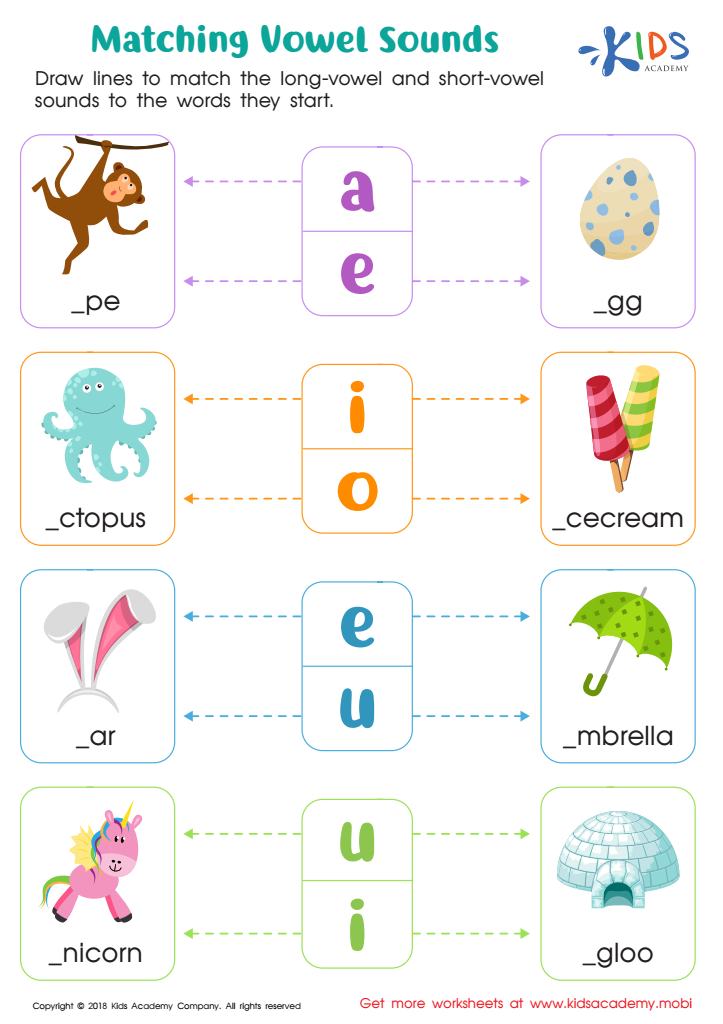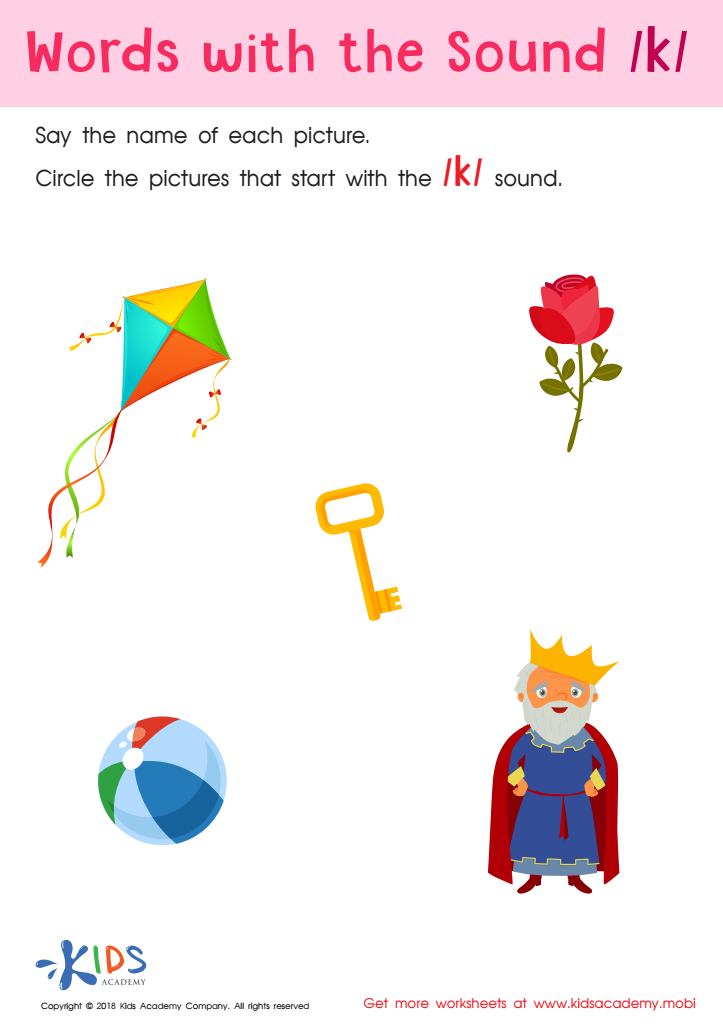Reading proficiency Phonics Worksheets for 4-Year-Olds
3 filtered results
-
From - To
Nurture early reading skills with our specially designed Reading Proficiency Phonics Worksheets for 4-Year-Olds. These engaging worksheets focus on phonics, helping young learners recognize letter sounds, blend them, and begin reading simple words. Through fun activities, children build a solid foundation in reading, setting the stage for future success. Our colorful, interactive sheets captivate kids' imagination, ensuring they enjoy their learning journey. Perfect for both classroom and home use, these worksheets align with educational standards and support early literacy development. Encourage your child's reading proficiency with our expertly crafted phonics worksheets and watch their confidence grow!


Matching Vowel Sounds Worksheet


Long and Short U Worksheet


Words with sound k Reading Worksheet
Phonics plays a crucial role in early childhood education, particularly for 4-year-olds, because it serves as a foundational pillar for developing reading proficiency. Phonics involves teaching children the relationships between letters and sounds, which is essential for decoding words. This early skill is a predictor of later reading success, making it critical for both parents and teachers to prioritize phonics instruction at an early age.
Children who grasp phonics can read independently more quickly, which promotes a love for reading and a higher level of engagement with written material. Early reading skills also lead to better self-esteem and confidence in young learners, as they feel more competent and willing to participate in classroom activities. Furthermore, proficiency in reading at an early age boosts cognitive skills, as it contributes to enhanced vocabulary, comprehension abilities, and critical thinking.
Without a strong foundation in phonics, children may struggle with reading throughout their academic careers, leading to frustration and a possible aversion to learning. Early intervention and emphasis on phonics help mitigate these risks, equipping children with the tools they need to succeed in school and beyond. Hence, both parents and teachers should make phonics a priority to ensure children's long-term educational and personal growth.
 Assign to My Students
Assign to My Students



















